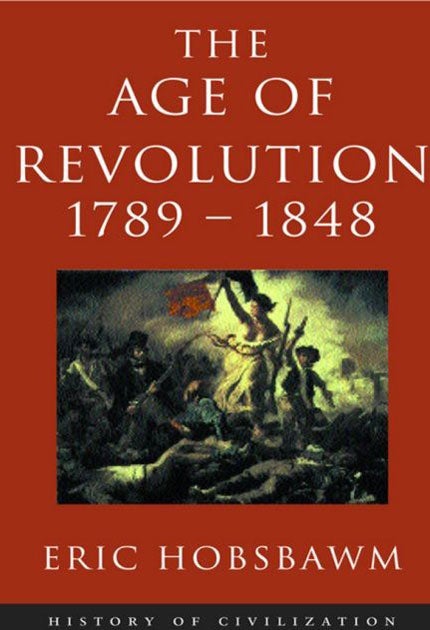The Reading List: Revolutions

History
The Age of Revolution: 1789-1848 by Eric Hobsbawm. Peter Smith £12.99
The first instalment of his four-part epic chronicling Europe from 1789 to 1991, Age Of Revolution is a classic in its field. It explores the manifold changes wrought during the period – which witnessed both the British Industrial Revolution and the French Revolution – and demonstrates how Europe established its place as the pre-eminent global power of the era.
Classic
Common Sense by Thomas Paine. Penguin £8.99
Paine's pamphlet is one of the most famous pieces of mischief-making in history. Written in an accessible (for the time) style and taking advantage of advances in mass printing, Common Sense fermented American revolutionary sentiment with its convincing argument for freedom from British rule.
Poetry
The French Revolution by William Blake (The Poetical Works Of William Blake). Kessinger Publishing £26.95
Originally intended to be seven books in length, only one part of Blake's work has been made public. In it, he discusses the problems of the French monarchy, church and feudal system and advocates the destruction of the Bastille in the name of freedom. Though meant more as a work of history than of polemic, The French Revolution still caused controversy. Its printer, Joseph Johnson, was imprisoned – which may explain the absence of the final six parts.
World History
1968: The Year That Rocked the World by Mark Kurlansky. Vintage £9.99
1968 was the year that saw both Bobby Kennedy and Martin Luther King assassinated, while students took to the streets in protest at the Vietnam war. In Europe, French protesters were bringing down de Gaulle's government while Soviet tanks were forced to deal with rebellion in Prague. Mark Kurlansky examines the many and varied events that distinguished 1968.
Novel
A Tale of Two Cities by Charles Dickens. Wordsworth Editions £1.99
Dickens' epic work dwells the plight of the peasantry in pre-Revolutionary France – as well as the post-Revolutionary violence – drawing comparison with London's poor. He follows several protagonists, including Charles Darnay, a French aristocrat who, despite his virtue, falls victim to ill-treatment at the hands of the Republicans.
Join our commenting forum
Join thought-provoking conversations, follow other Independent readers and see their replies
Comments
Bookmark popover
Removed from bookmarks